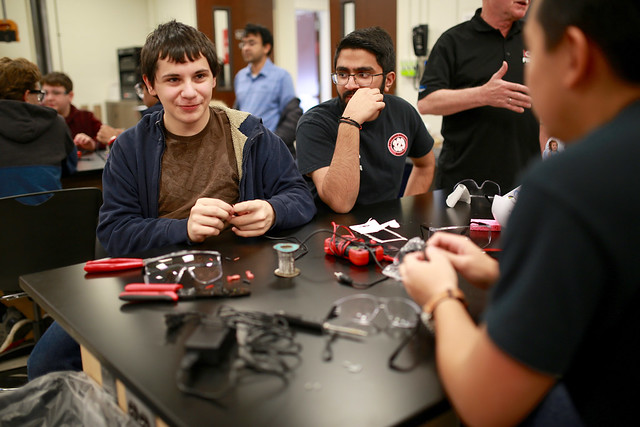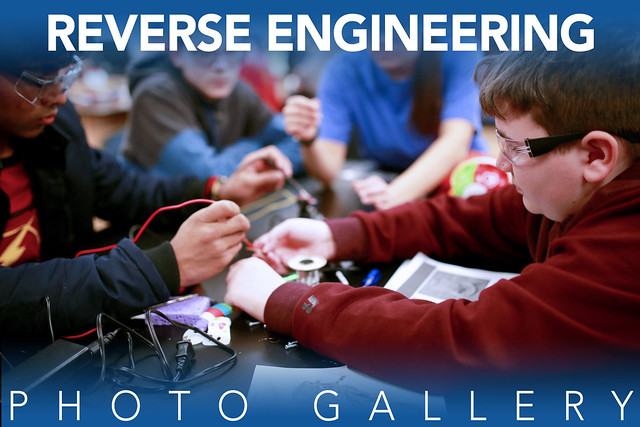
Reverse Engineering
FIRST® Robotics Competition students and members of Hofstra’s Society of Women Engineers (SWE) put their technical skills to work reconfiguring toys for children with disabilities at the FIRST® Robotics Outreach event hosted by the Fred DeMatteis School of Engineering and Applied Science.

The Toy Adaptation Program (TAP) – an activity that originated at The Ohio State University College of Engineering - teaches students how to modify toys for children with impaired fine motor skills.
“Adapting a toy to meet the needs of a disabled child taught me about the positive influence engineering can have on a community,” said Ally Jett, a senior at Our Lady of Mercy Academy in Syosset.
Assistant Professor of Mechanical Engineering Dr. Lynn Albers, PhD, organized the event.
“It was great hosting some of the most talented high school students on Long Island and seeing them collaborate with our students in our state-of-the-art labs,” she said. “This was an opportunity to share our engineering expertise with the community and to help empower young people to use their engineering skills for the greater good.”
“This project demonstrated how much you can learn from ‘reverse engineering’ or taking things apart and putting them back together. Plus, it’s fun!”

Under the guidance of SWE mentors, teams of FIRST Robotics students began by assembling a large push button switch and soldering a male jack onto the wires connected to it. Next, they took apart a store bought electronic toy, cut two wires attached to the toy’s battery pack and soldered in wires leading to a female jack, which connected to the external push button.
“Engineering students are used to assembling things,” Dr. Albers said. “This project demonstrated how much you can learn from ‘reverse engineering’ or taking things apart and putting them back together. Plus, it’s fun!”
In addition to learning technical skills like rewiring and soldering, the exercise reinforced soft skills such as teamwork, collaboration, troubleshooting, and communication.
“A major part of the process of retrofitting these toys was troubleshooting and figuring out what went wrong when a toy didn’t work,” said Society of Woman Engineers President Aishu Gandhi ’20. “I think this program reinforced the importance of continuing to work despite failure. The students were very motivated and more than half of them stayed a couple of hours past the event to have the best possible results.”

“Younger boys and girls need to know that STEM fields are a career option for them.”
The program was also an opportunity for younger students with an interest in STEM (science, technology, engineering and mathematics) to interact and connect with college mentors.
“Younger boys and girls need to know that STEM fields are a career option for them,” said SWE Club Secretary Jenna Alma ’21, a biomedical engineering major. “Getting the chance to work with college students provides younger kids with a role model.”
Following the workshop, FIRST Robotics students toured Hofstra’s Mechatronics and Aerodynamics and Transport Phenomena laboratories.
The Department of Engineering plans to make this an annual event.
